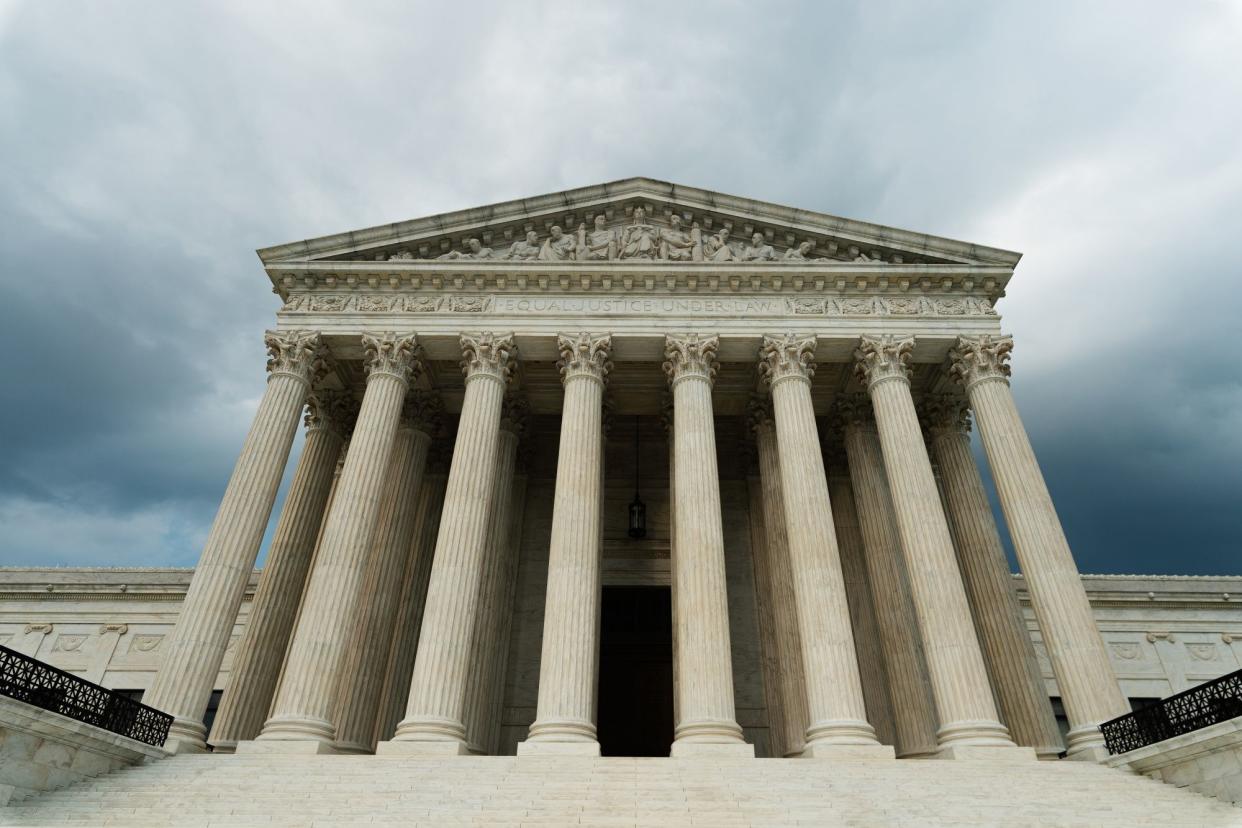Supreme Court Probe Fails to Identify Who Leaked Roe Opinion

(Bloomberg) -- The US Supreme Court said it had failed to identify the culprit after an eight-month investigation into last year’s unprecedented leak of its opinion overturning the constitutional right to abortion.
Most Read from Bloomberg
Holmes Belongs in Prison, Not $13,000-a-Month Manor, US Says
Google to Cut 12,000 Jobs in 6% Reduction of Global Workforce
Stocks Bounce Thanks to Tech Rally, Fed Comments: Markets Wrap
The court said in a statement Thursday that the investigative team “has to date been unable to identify a person responsible by a preponderance of the evidence.”
In a 20-page report, Supreme Court Marshal Gail Curley said investigators examined the court’s aging computer systems for clues and interviewed 97 employees, all of whom denied disclosing the opinion. She said her team was still pursuing a few lines of inquiry but offered little reason to think those queries might prove fruitful.
The failure to find the culprit is a new blow to a court whose public approval ratings have slid in recent years amid ethical questions, controversial opinions and a highly politicized appointment and confirmation process that has produced a conservative super-majority.
The court called the leak “a grave assault on the judicial process” and an “extraordinary betrayal of trust.”
The June 24 ruling overturned Roe v. Wade, the 1973 decision that legalized abortion nationwide. Politico published the draft opinion on May 2 and said it had at least the tentative support of five justices.
Curley, the court’s top security officer, said that it was unlikely the court’s computer system was hacked, saying that “the evidence to date reveals no suggestion of improper outside access.” She said investigators couldn’t rule out the possibility that the leak was inadvertent.
The court said 82 employees had access to electronic or hard copies of the draft opinions. The group includes about three dozen law clerks who worked at the court at the time and have since finished their one-year stints.
Telling Spouses
Curley said each interviewee was asked to sign an affidavit, under penalty of perjury, denying responsibility for the leak. She said a few people admitted to telling their spouses about the draft opinion or vote count, in violation of the court’s strict confidentiality rules. She said investigators conducted a total of 126 formal interviews, including follow-up sessions.
Her report didn’t say whether the justices themselves were interviewed, referring to the people who were questioned as “employees” or “personnel.”
She said that “all employees who were requested to do so voluntarily provided call and text detail records and billing statements” for their personal mobile phones.
Curley said investigators were limited by the court’s out-of-date computer system, saying that “technical limitations in the court’s computer recordkeeping at the time made it impossible to rule out” the possibility that the draft opinion was emailed to an unauthorized person.
“The investigators were not able to readily search and analyze all event logs because at the time the system lacked substantial logging and search functions,” she said.
Chertoff Consultation
The court said it consulted Michael Chertoff, the former secretary of homeland security and former federal appeals court judge, to assess the investigation. In a statement, Chertoff said that the probe was a thorough one and that he “cannot identify any additional useful investigative measures.”
Curley made a number of recommendations, including updating the court’s information security policies and reducing the number of people with access to internal documents.
“Too many personnel have access to certain court-sensitive documents,” she wrote. “Distribution should be more tailored and the use of hard copies for sensitive documents should be minimized and tightly controlled.”
The final opinion, written by Justice Samuel Alito, was virtually identical to the draft except for new sections that responded to the dissenting and concurring opinions. Five conservative justices voted to overturn Roe while a sixth, Chief Justice John Roberts, said he would have upheld a 15-week Mississippi ban while leaving at least some right to get an abortion.
The day after the Politico story appeared, Roberts asked Curley to investigate the leak. The court hadn’t provided any updates since then.
(Updates with details of investigation starting in seventh paragraph.)
Most Read from Bloomberg Businessweek
Fake Meat Was Supposed to Save the World. It Became Just Another Fad
The Coyotes Working the US Side of the Border Are Often Highly Vulnerable, Too
What Tech Job Cuts Say About Silicon Valley—and the Rest of the Economy
©2023 Bloomberg L.P.



